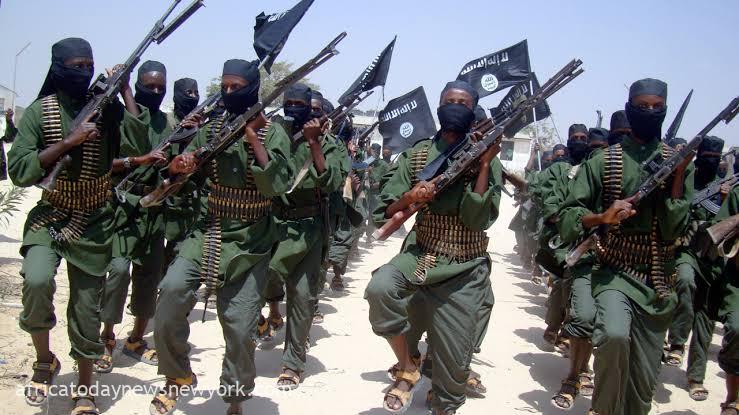The African Union force has confirmed that members of the insurgent group, Al-Shabaab have attacked its military base in Somalia.
For over 15 years, the terrorist group has been waging a deadly jihadist insurgency against the central government in the fragile Horn of Africa nation.
The army base in Bulo Marer, 120 kilometres (75 miles) South-West of the capital Mogadishu “came under Al-Shabab attack,” the AU force known as ATMIS said in a statement on Facebook and Twitter.
It said, ‘ATMIS forces are currently assessing the security situation.’ No casualties have been reported.
Africa Today News, New York recall, the army and militias known as ‘macawisley’ have retaken swathes of territory in the centre of the troubled country in an operation backed by ATMIS and US airstrikes.
Despite the gains by the pro-government forces, the militants have continued to strike with lethal force against civilian and military targets.
In the deadliest Al-Shabaab attack since the offensive was launched last year, 121 people were killed in October by two car bombings at the education ministry in the capital Mogadishu.
In another report, flash flooding in central Somalia has killed 22 people and affected over 450,000, the UN’s humanitarian agency OCHA said Sunday, after the Shabelle River burst its banks, forcing tens of thousands out of their homes.
Africa Today News, New York reports that heavy rainfall earlier in the week sent water gushing into homes in Beledweyne town in Hiran region, submerging roads, and buildings as residents grabbed their belongings and waded through flooded streets in search of refuge.
‘Initial estimates indicate that the flash and riverine floods across Somalia have affected at least 460,470 people, of whom nearly 219,000 have been displaced from their homes mainly in flood-prone areas, and 22 killed,’ the UN’s Office for the Coordination of Humanitarian Affairs said.
The floods ‘have left a trail of destruction… inundating homes and farmland, washing away livestock, temporarily closing schools and health facilities, and damaging roads,’ the agency said in a situation report.
The disaster comes on the heels of a record drought that has left millions of Somalis on the brink of famine, with the troubled nation also battling an Islamist insurgency for decades.

